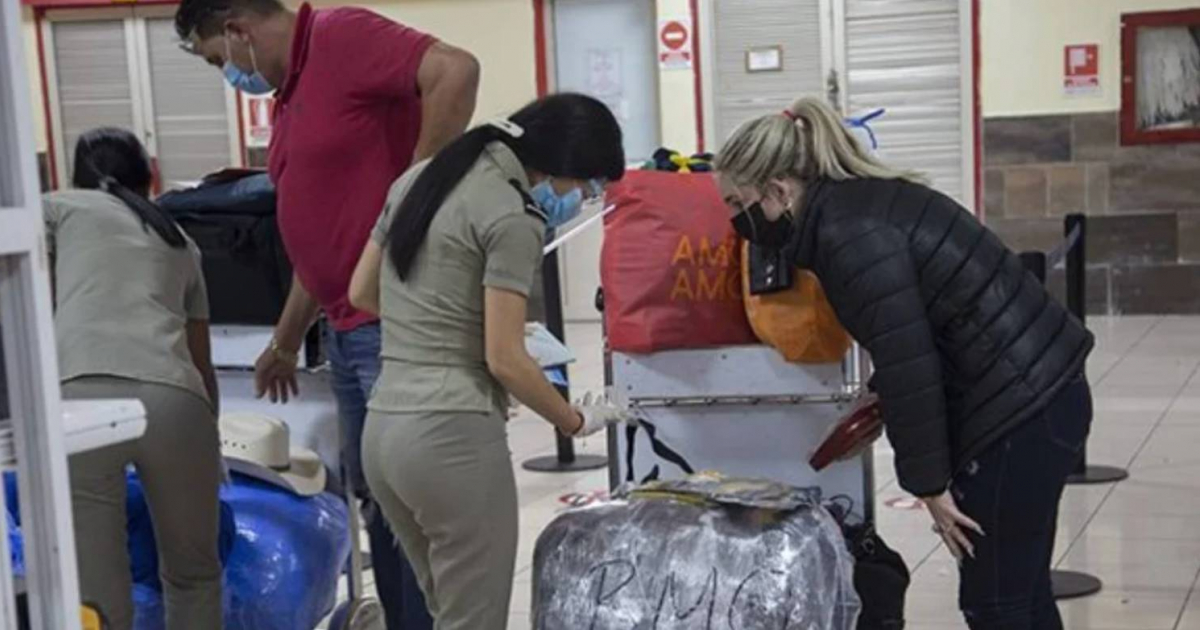
Related videos:
The Cuban regime implemented a reform to Decree-Law 22 of 2020, which imposes the payment of tariffs in dollars on non-commercial imports of certain items.
The measure, which has been in effect since January 1, introduces significant changes to import policies for travelers, as established in Decree-Law 101, published in the Official Gazette.
These modifications mainly affect the payment conditions for customs duties, the calculation methods, and the currency accepted for paying customs fees.
The new decree updates the provisions of Decree-Law 22 of 2020, which regulated non-commercial imports, specifically those carried out by individuals or legal entities for personal consumption or specific use.
Among the most significant changes is the requirement to pay tariffs in freely convertible currency (MLC), such as the United States dollar (USD), for certain imported products.
Additionally, the option to apply specific rates based on the quantity of imported products will be introduced, instead of only calculating a percentage based on their value (ad valorem duty).
One of the main effects of these changes will be the introduction of payments in US dollars or their equivalent in other strong currencies for certain imported products, which could lead to additional costs for travelers, especially those coming from the United States.
The calculation of tariffs will continue to be based on a percentage of the value of the products, but it may also include fixed fees for certain items.
Furthermore, the Ministry of Finance and Prices will have the authority to adjust the tariff scales and decide in which currency the debt should be paid, "based on the economic interests of the country."
Another significant change in Decree-Law 101 is the exceptional authorization allowing Cuban state entities to engage in non-commercial activities, as long as they benefit the national economy. This measure provides greater flexibility in the imports for these entities.
In addition to changes in customs policies, starting April 1, 2025, the Ministry of Foreign Affairs of Cuba will require all Cuban citizens residing abroad to enter the country with a valid Cuban passport, a measure that will end the exception established during the COVID-19 pandemic.
This measure will impact those Cubans who were able to travel to Cuba with expired passports during the health crisis. The decision is in response to the normalization of international flights and the resumption of consular services, the regime stated.
These new regulations aim to optimize customs revenue collection and ensure a more efficient management of foreign currency by the government in a deep crisis, as it is eager to attract as much foreign currency as possible.
At the end of December, the Cuban government approved a document regulating the "partial dollarization of the economy," as announced by Prime Minister Manuel Marrero Cruz during the fourth ordinary session of the National Assembly.
This measure reflected the growing influence of the U.S. dollar in the country, which is traded on the black market at over 300 Cuban pesos.
Frequently Asked Questions about the New Dollar Tariffs for Imports in Cuba
What are the main changes in import policies in Cuba?
The Cuban government has imposed the payment of tariffs in dollars for certain non-commercial imports. Additionally, specific fees have been introduced based on the quantity of products, along with ad valorem calculations. This primarily affects travelers, who will now have to pay in freely convertible currency for certain products.
How does the new regulation affect Cuban travelers?
Cuban travelers will have to pay duties in US dollars or their equivalent in other strong currencies for certain imported products. This could increase travel costs, especially for those coming from countries like the United States.
What does the "partial dollarization" of the Cuban economy imply?
"Partial dollarization" involves an increased use of the US dollar in certain economic sectors in Cuba, such as wholesale and retail trade, as well as the payment of tariffs. Cash in dollars will also be accepted in strategic sectors like tourism to attract more foreign currency revenue.
Why has the Cuban government decided to start accepting cash payments in dollars again?
The Cuban government has decided to accept cash payments in dollars to enhance liquidity and attract more foreign currency amid a severe economic crisis. This measure aims to facilitate transactions in sectors where credit cards do not always work, such as tourism.
Filed under: